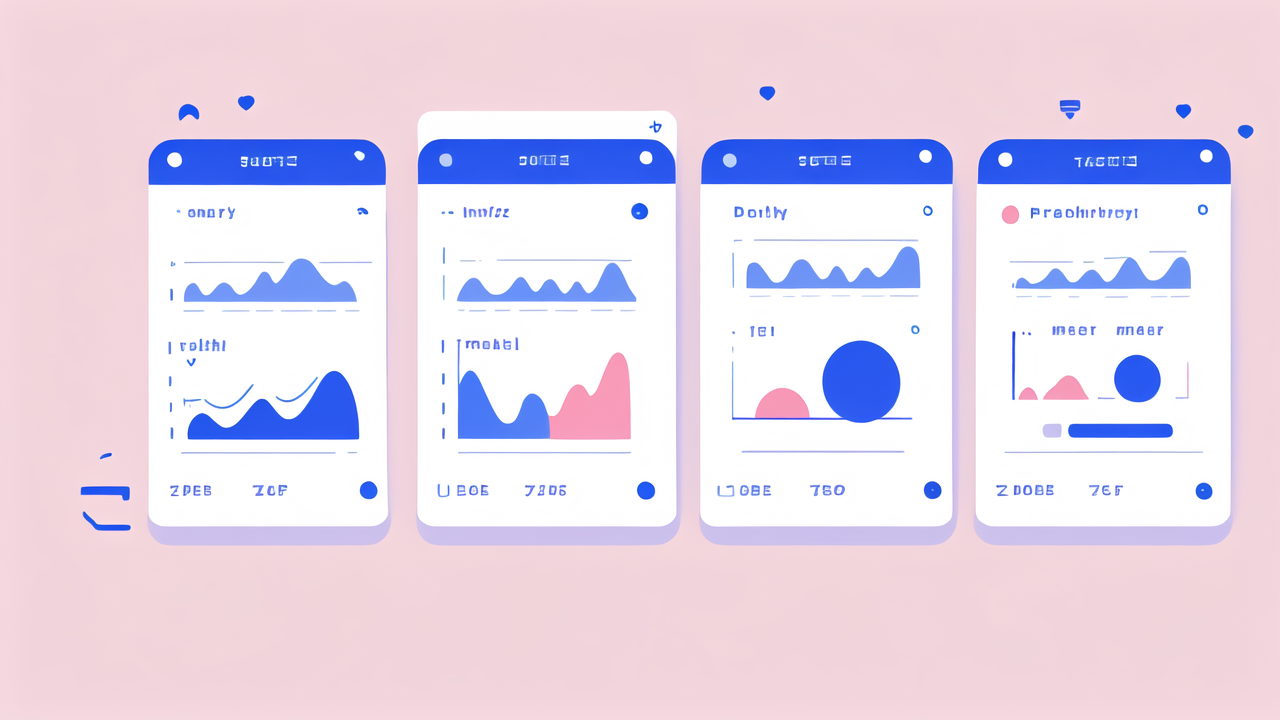The Evolution of Health Tracking Technologies
A Brief History of Health Measurement Tools
Health measurement tools have come a long way. In the past, we relied on simple devices like scales and thermometers. These tools gave us basic info about our health. As time passed, more advanced tools emerged. Blood pressure monitors and glucose meters became common in homes. They helped people track specific health issues.

The digital age brought new possibilities. Pedometers became popular for counting steps. They were simple but effective. Soon, wearable devices like Fitbit appeared. These trackers could monitor various health metrics. They counted steps, tracked sleep, and measured heart rate. The evolution was rapid and exciting.
Recent Advancements in Personal Health Monitoring
Today's health trackers are more advanced than ever. They can measure a wide range of health metrics. Some devices can track blood oxygen levels and skin temperature. Others can detect irregular heart rhythms. Many can even monitor stress levels through heart rate variability.
Smartwatches have become powerful health tools. They combine various sensors in one device. Some can take ECG readings or measure blood pressure. Continuous glucose monitors are now available for non-diabetics. They provide insights into how food affects blood sugar levels.
There are also specialized devices for specific health concerns. Sleep trackers can analyze sleep patterns in detail. Fertility trackers help women understand their menstrual cycles better. The options for personal health monitoring are vast and growing.
The Integration of AI and Machine Learning in Health Tracking
AI and machine learning are changing the game in health tracking. These technologies make devices smarter and more useful. They can analyze large amounts of data quickly. This helps in identifying patterns and trends in health metrics.
AI-powered health trackers can provide personalized insights. They learn from your data and habits over time. This allows them to offer tailored advice and predictions. For example, they might warn you about potential health issues based on your trends.
Machine learning algorithms can also improve the accuracy of health measurements. They can filter out noise and detect anomalies in data. This makes the readings more reliable. As these technologies advance, health trackers will become even more powerful tools for managing our health.
Impact of Health Trackers on Wellness and Preventive Care
Enhancing Patient Outcomes with Proactive Health Monitoring
Health trackers are changing how we approach healthcare. They allow for continuous monitoring of vital signs. This helps in early detection of health issues. Doctors can spot problems before they become serious. This leads to better patient outcomes.

Patients with chronic conditions benefit greatly from these devices. They can track their symptoms daily. This helps in managing their condition more effectively. For example, heart patients can monitor their heart rate and rhythm. Diabetics can keep a close eye on their blood sugar levels.
These devices also improve communication between patients and doctors. Patients can share their health data easily. This gives doctors a more complete picture of the patient's health. It allows for more informed decisions about treatment.
Personal Health Trackers: Empowering Consumers for Better Health
Health trackers are empowering people to take charge of their health. They provide real-time data about our bodies. This awareness can motivate us to make healthier choices. Many people use trackers to set and achieve fitness goals.
These devices make it easier to monitor diet and exercise habits. They can track calories burned and consumed. Some even provide personalized workout suggestions. This helps users stay on track with their health goals.
Health trackers also help in understanding sleep patterns. Good sleep is crucial for overall health. By tracking sleep, people can make changes to improve their rest. This can lead to better energy levels and overall well-being.
The Role of Health Tracking in Preventive Care Models
Health tracking is becoming a key part of preventive care. It allows for early intervention in potential health issues. This can prevent many diseases from developing or worsening. It's a shift from reactive to proactive healthcare.
Insurance companies are taking notice of this trend. Some offer incentives for using health trackers. They recognize that prevention is cheaper than treatment. Employers are also promoting health tracking among their staff. It's seen as a way to reduce healthcare costs and improve productivity.
Healthcare providers are integrating tracking data into their care models. They use this data to create personalized health plans. This approach can lead to more effective preventive care strategies. It's a win-win for both patients and healthcare systems.
Future Trends and Challenges in Health Tracking
The Interoperability Challenge: Connecting Health Data Systems
One big challenge in health tracking is interoperability. This means making different systems work together. Right now, health data often exists in separate silos. This makes it hard to get a complete picture of someone's health.

Efforts are being made to solve this problem. Standards are being developed for health data exchange. The goal is to create a seamless flow of information. This would allow data from various devices to be easily shared and analyzed.
Interoperability could revolutionize healthcare. It would allow for more comprehensive health insights. Doctors could access a patient's complete health history easily. This would lead to better diagnoses and treatment plans.
Ethical Considerations in Personal Health Data Usage
As health tracking becomes more common, ethical concerns arise. Privacy is a major issue. Health data is very personal and sensitive. There are worries about how this data might be used or misused.
Questions about data ownership and control are important. Who owns the data collected by health trackers? How can we ensure it's not used for discrimination? These are complex issues that need careful consideration.
There's also the question of informed consent. Users should understand how their data will be used. They should have control over who can access their health information. Balancing the benefits of data sharing with privacy rights is a ongoing challenge.
Regulatory Landscape and Compliance in Health Tracking Innovations
The regulatory landscape for health tracking is evolving. As these devices become more advanced, they face more scrutiny. Regulators are working to ensure these devices are safe and effective.
In the US, the FDA has created guidelines for digital health technologies. They aim to balance innovation with safety. Some health tracking devices now require FDA approval. This is especially true for those that claim to diagnose or treat medical conditions.
Compliance with data protection laws is also crucial. Laws like HIPAA in the US protect health information. Companies developing health trackers must ensure they comply with these regulations. This includes securing data and respecting user privacy rights.
As health tracking technology advances, regulations will likely evolve too. The challenge is to create rules that protect consumers without stifling innovation. It's a delicate balance that will shape the future of health tracking.




Leave a comment
This site is protected by hCaptcha and the hCaptcha Privacy Policy and Terms of Service apply.